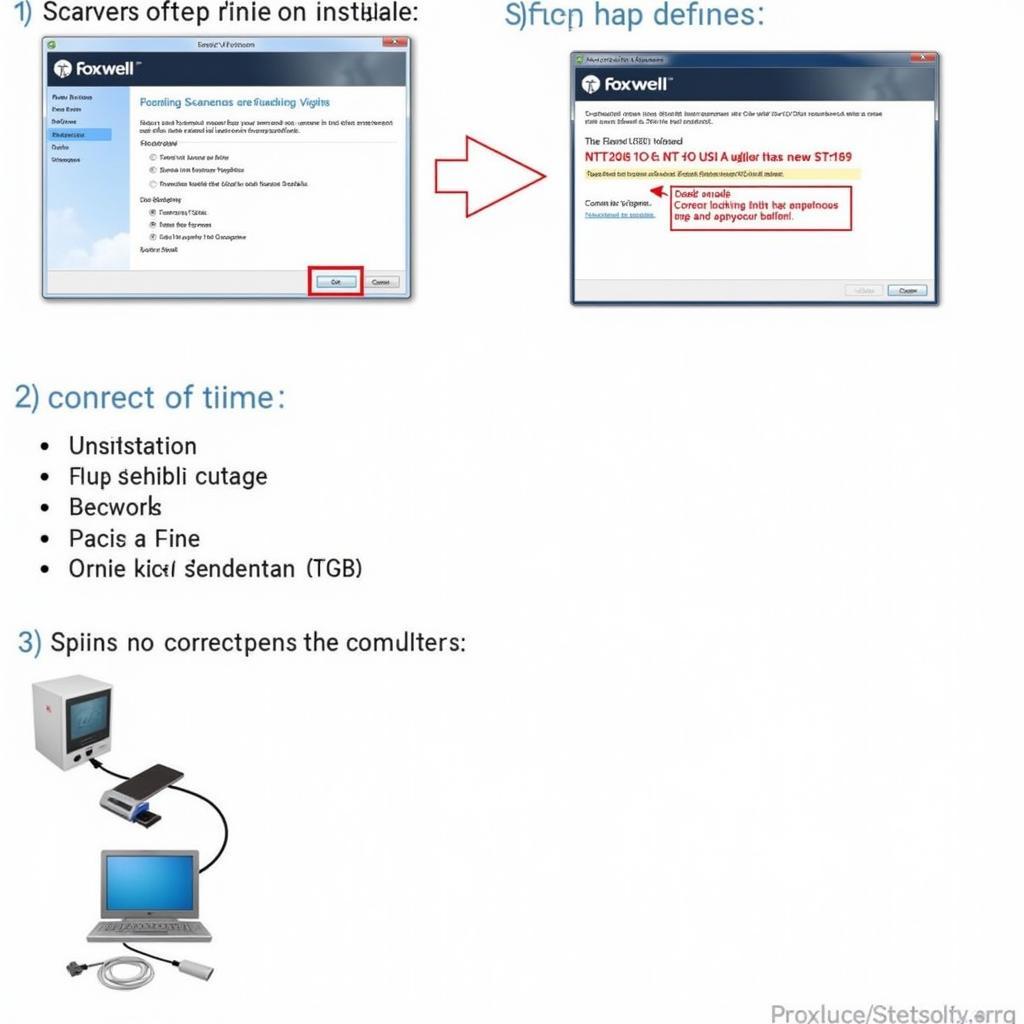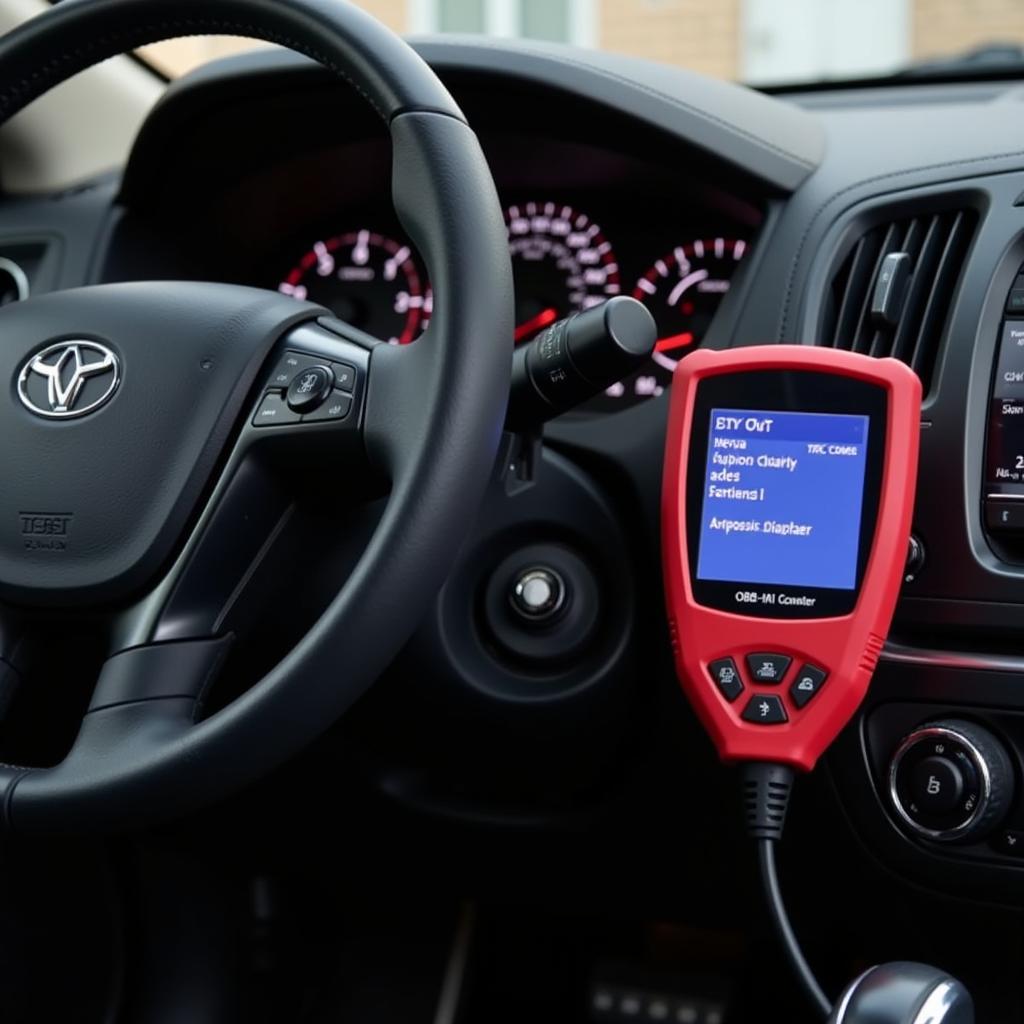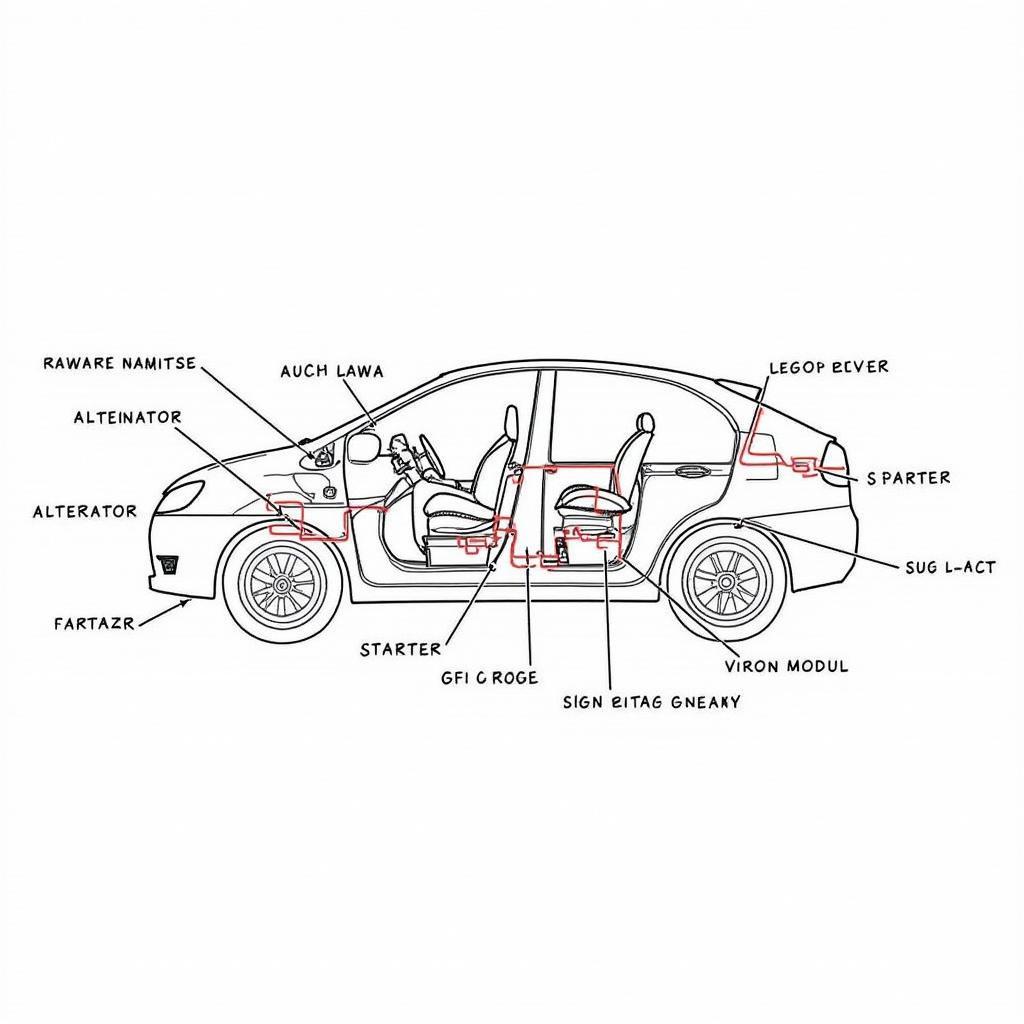The phrase “Foxwell pulls shit that is counted from servers” might sound strange at first, but it points to a crucial aspect of modern automotive diagnostics: data accuracy. In an age where vehicles are practically computers on wheels, mechanics need reliable information to pinpoint and solve issues effectively. This article delves into the importance of using reliable diagnostic tools like Foxwell scanners and how they access accurate data to help you keep your car in top shape.
One of the biggest challenges facing automotive technicians today is the sheer volume and complexity of vehicle data. Gone are the days of relying solely on mechanical know-how and a trusty wrench. Modern cars are packed with electronic control units (ECUs) that monitor and manage everything from engine performance to safety systems. These ECUs generate a constant stream of data that can be crucial in identifying and diagnosing problems.
This is where high-quality diagnostic tools like Foxwell scanners come into play. Unlike generic OBD-II readers that provide limited information, Foxwell scanners are designed to access manufacturer-specific data directly from the source – the vehicle’s servers. This means that you’re getting the most up-to-date and accurate information possible, enabling you to make informed decisions about repairs and maintenance.
Why Accurate Data Matters in Automotive Diagnostics
Imagine trying to solve a complex math problem with the wrong formula – you’re bound to get the wrong answer. The same principle applies to car repairs. Using inaccurate or incomplete data can lead to misdiagnoses, wasted time, and unnecessary expenses.
Here are a few key reasons why accurate data is paramount in automotive diagnostics:
-
Pinpointing the Root Cause: Modern cars often exhibit a cascade of warning lights and error codes. Accurate data helps you distinguish between the root cause of a problem and its symptoms, preventing you from addressing surface-level issues while neglecting the underlying cause.
-
Efficient Repairs: Time is money, especially in the automotive repair industry. Accurate data streamlines the diagnostic process, allowing you to identify the faulty component or system quickly and efficiently.
-
Preventing Future Issues: By analyzing historical data and trends, Foxwell scanners can help identify potential problems before they escalate, saving you from costly repairs and breakdowns down the line.
How Foxwell Accesses and Utilizes Vehicle Data
Foxwell scanners leverage advanced technology to connect with your vehicle’s onboard computer system and retrieve data with remarkable accuracy. Here’s a simplified breakdown of the process:
- Connection: The scanner connects to your vehicle’s OBD-II port, a standardized interface found in most cars manufactured after 1996.
- Communication: The scanner communicates with the vehicle’s ECUs using standardized protocols, requesting specific data streams and diagnostic trouble codes (DTCs).
- Data Retrieval: Foxwell scanners go beyond simply reading generic DTCs. They access manufacturer-specific databases and servers to retrieve detailed information about the codes, including potential causes, common fixes, and even wiring diagrams.
- Analysis & Presentation: The scanner processes the retrieved data and presents it in an organized and user-friendly format on its display screen. This information can include live data streams, historical data logs, and even interactive troubleshooting guides.
The Importance of Reliable Diagnostic Tools
While the phrase “Foxwell pulls shit that is counted from servers” might sound like colorful jargon, it highlights a critical point: the source of your diagnostic data matters. Relying on generic or outdated tools can lead to inaccurate information and costly mistakes.
Investing in a reliable and up-to-date diagnostic scanner like those offered by Foxwell is an investment in your peace of mind. Whether you’re a professional mechanic or a car enthusiast who likes to tinker under the hood, having access to accurate data empowers you to make informed decisions about your vehicle’s maintenance and repairs.
Choosing the Right Foxwell Scanner for Your Needs
Foxwell offers a range of diagnostic scanners tailored to different needs and budgets.
For DIYers and car enthusiasts, entry-level scanners provide essential functionality for reading and clearing DTCs, monitoring live data streams, and performing basic resets.
Professional mechanics and advanced users will benefit from more sophisticated models that offer features like:
- Bi-directional control: Allows you to interact with vehicle systems for component testing and advanced troubleshooting.
- ECU coding and programming: Enables you to perform software updates, reprogram keys, and customize certain vehicle settings.
- Extensive vehicle coverage: Ensures compatibility with a wide range of makes and models, including domestic, Asian, and European vehicles.
When choosing a Foxwell scanner, consider your budget, the types of vehicles you work on, and the level of functionality you require.
Conclusion
In the ever-evolving world of automotive technology, staying ahead of the curve is essential. Foxwell scanners empower both professional mechanics and car enthusiasts with the accurate data they need to diagnose and repair modern vehicles effectively.
Remember, accurate data is the foundation of successful automotive diagnostics. By investing in reliable tools and staying informed about the latest advancements, you can keep your car running smoothly for miles to come.
For expert advice on choosing the right Foxwell scanner for your needs, contact ScanToolUS at +1 (641) 206-8880 or visit our office located at 1615 S Laramie Ave, Cicero, IL 60804, USA. We’re here to help you navigate the complexities of modern car repair and keep your vehicle in peak condition.



